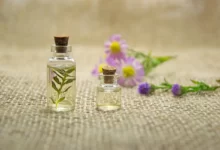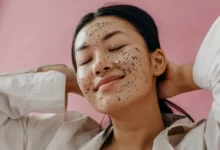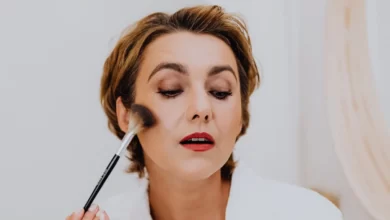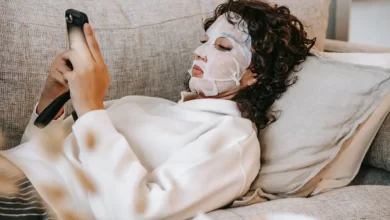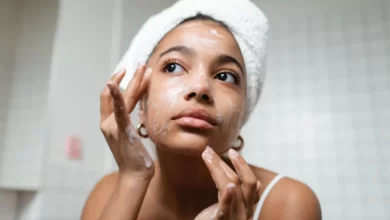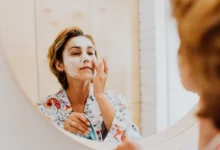In the world of natural remedies and holistic beauty treatments, few ingredients have captured the spotlight quite like Aloe Vera. This succulent plant, known for its myriad health benefits, has been used for centuries to treat a variety of skin and health issues. But did you know that Aloe Vera is also a secret weapon for achieving luscious, healthy hair and a nourished scalp? In this comprehensive guide, we’ll dive into the wonders of Aloe Vera and its role in transforming your hair care routine.
Aloe Vera: Nature’s Elixir for Hair Care
What is Aloe Vera?
Aloe Vera, scientifically known as Aloe barbadensis miller, is a succulent plant that has been cherished for its therapeutic properties for centuries. It belongs to the Asphodelaceae family and is native to arid regions, primarily found in parts of Africa, the Arabian Peninsula, and certain tropical and subtropical areas. This plant has a unique appearance, characterized by its thick, fleshy leaves that store a gel-like substance within.
Historical Significance
The historical significance of Aloe Vera dates back to ancient civilizations, including the Egyptians, Greeks, and Romans. These cultures recognized the plant’s remarkable healing properties and utilized it for various medicinal purposes. The Egyptians often referred to Aloe Vera as the “plant of immortality” due to its ability to address a wide range of ailments and enhance overall health.
Botanical Characteristics
Aloe Vera typically grows in a rosette pattern, with its leaves extending upward from a central base. The leaves themselves are long, lance-shaped, and have serrated edges. What makes Aloe Vera truly remarkable is the translucent, gel-like substance contained within its leaves. This gel, sometimes referred to as “Aloe Vera gel,” is packed with a diverse array of bioactive compounds that contribute to its impressive healing qualities.
The Composition of Aloe Vera Gel
Aloe Vera gel is a complex mixture of beneficial components, including:
Water: A significant portion of the gel is composed of water, which contributes to its hydrating properties.
Polysaccharides: These complex sugars play a role in moisturizing and soothing the skin and scalp. Polysaccharides also contribute to the gel’s ability to form a protective layer over the skin, aiding in the healing of wounds and irritations.
Enzymes: Aloe Vera contains several enzymes, such as amylase and lipase, that break down sugars and fats. These enzymes can aid in exfoliation, removing dead skin cells from the scalp and promoting a healthier environment for hair growth.
Vitamins and Minerals: Aloe Vera is rich in vitamins A, C, and E, as well as a variety of minerals like magnesium, calcium, and zinc. These nutrients are essential for maintaining healthy skin and hair.
Amino Acids: The gel contains a range of amino acids, which are the building blocks of proteins. These amino acids contribute to the repair and maintenance of hair follicles and strands.
Antioxidants: Aloe Vera is packed with antioxidants like beta-carotene and vitamin C, which protect the skin and hair from damage caused by free radicals.
Hormones: The gel contains auxins and gibberellins, which are plant hormones that aid in wound healing, inflammation reduction, and cell growth.
Fatty Acids: Aloe Vera gel includes beneficial fatty acids like salicylic acid, which can have a gentle exfoliating effect and help manage conditions like dandruff.
Culinary and Medicinal Uses:
Beyond its applications in beauty and skincare, Aloe Vera has also found its way into the culinary and medicinal realms. The gel is sometimes used as a natural ingredient in beverages and dietary supplements due to its potential health benefits. In traditional medicine, Aloe Vera has been used to treat a wide range of issues, including digestive problems, skin irritations, burns, and minor wounds.
The Benefits of Aloe Vera for Hair
Scalp Nourishment: A healthy scalp is the foundation for strong and vibrant hair. Aloe Vera’s anti-inflammatory and moisturizing properties help soothe irritated scalps and promote a balanced pH level, creating an optimal environment for hair growth.
Hair Growth Stimulation: Rich in proteolytic enzymes, Aloe Vera helps remove dead skin cells from the scalp, unclogging hair follicles and stimulating hair growth. It also contains vitamins and minerals that nourish hair follicles and encourage healthy hair growth.
Conditioning and Hydration: Aloe Vera acts as a natural conditioner, leaving your hair feeling soft, smooth, and manageable. Its lightweight consistency ensures that your hair doesn’t feel weighed down, making it ideal for all hair types.
Reducing Dandruff and Dryness: With its antimicrobial properties, Aloe Vera helps combat dandruff and dryness. It provides a soothing relief to an itchy scalp while addressing the root causes of these issues.
Minimizing Hair Loss: Aloe Vera’s ability to improve blood circulation to the scalp and strengthen hair follicles can help reduce hair loss and prevent premature thinning.
Incorporating Aloe Vera Into Your Hair Care Routine
DIY Aloe Vera Hair Mask
Ingredients:
2-3 tablespoons of Aloe Vera gel
1 tablespoon of coconut oil (for extra nourishment)
1 teaspoon of honey (for added shine)
Instructions:
a. Mix the Aloe Vera gel, coconut oil, and honey in a bowl.
b. Apply the mixture to damp hair, focusing on the scalp and hair strands.
c. Leave it on for 30-45 minutes and then rinse thoroughly with a gentle shampoo.
Aloe Vera Infused Shampoo and Conditioner
Look for hair care products that feature Aloe Vera as a key ingredient. These can provide consistent benefits without the need for a DIY routine. Opt for sulfate-free formulas to ensure maximum effectiveness.
Aloe Vera Juice Scalp Tonic
Ingredients:
1/4 cup of Aloe Vera juice
5-7 drops of tea tree oil (for its antifungal properties)
Instructions:
a. Mix the Aloe Vera juice and tea tree oil in a spray bottle.
b. Section your hair and spray the tonic onto your scalp.
c. Gently massage the tonic into your scalp using your fingertips.
d. Leave it on for an hour or overnight, then wash your hair as usual.
Precautions and Tips
While Aloe Vera is generally safe for most people, it’s important to do a patch test before applying it extensively to ensure you don’t have any adverse reactions. Here are a few tips to keep in mind:
a. Choose pure Aloe Vera gel or products with high Aloe content to reap maximum benefits.
b. Incorporate Aloe Vera treatments into your routine 1-2 times a week for noticeable results.
c. Consistency is key. Allow a few weeks of regular use to see a significant improvement in your hair and scalp health.
d. If you have any underlying scalp conditions or allergies, consult a dermatologist before using Aloe Vera extensively.
Conclusion
Aloe Vera is a true gift from nature, offering a holistic solution to your hair and scalp concerns. Its natural properties make it a versatile ingredient for anyone looking to enhance the health and appearance of their hair. By incorporating Aloe Vera-infused treatments into your routine, you can achieve a luxurious mane that radiates vitality and confidence. Embrace the power of Aloe Vera and let your hair shine with newfound brilliance.
